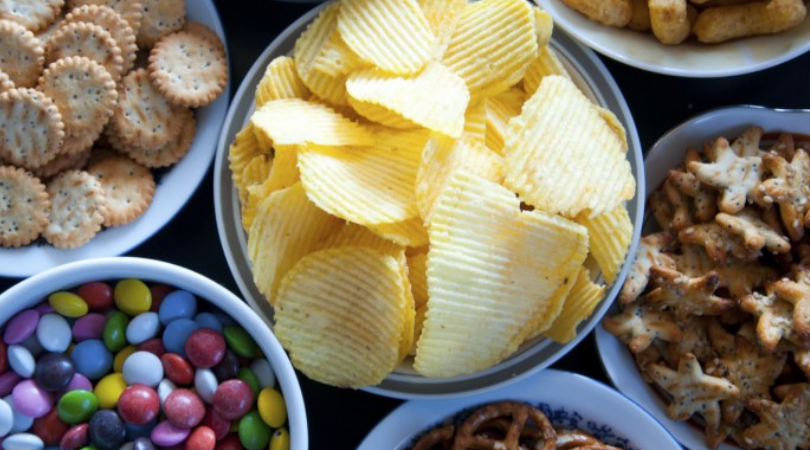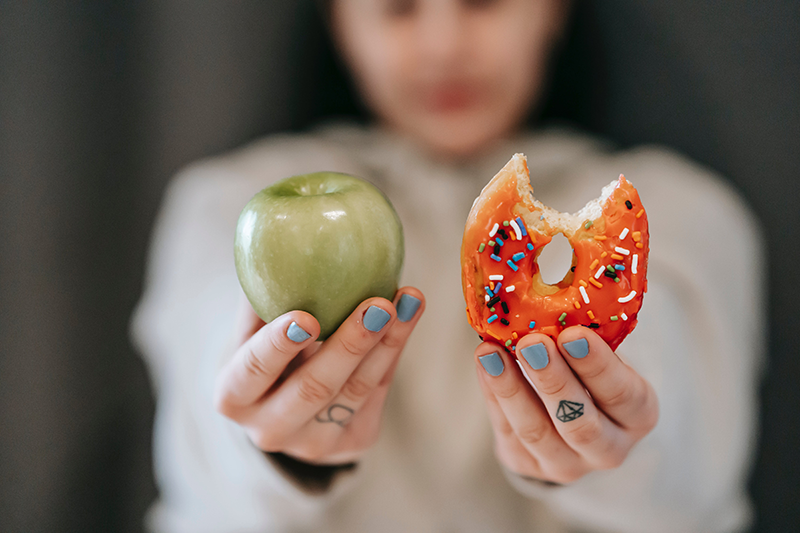
Food addiction is a very serious and real problem. Not simply because it leads to weight gain, but because in most cases it is a result of some psychological battle that the patient is dealing with. The problem is more than just the food. In a way, you could say that food is a symptom of the problem(s).
Does your weight affect your happiness?
For many people, it does—they think that losing weight means they’ll finally be HAPPY. Then they realize their life circumstances are very much the same after losing weight as they were before losing weight.
If a person has problems with relationships before weight loss, they’ll still have problems with relationships after weight loss. If they hated their job before weight loss, they’ll still hate their job after weight loss. If they were experiencing problems in their marriage or with their kids before weight loss, they will still have these same problems after weight loss.
After weight loss surgery, people are, for a time, unable to “use” food in the same way they did before. Some get the “dumping syndrome” if they consume too much sugar. If sugar is what they “used”/ate to feel better in the past, the person is left with a very large emotional void when they are no longer able to eat sugar.
Over time, they may become painfully aware of the issues they were trying to run from in life. If people turn to food to avoid problems at work, with family, with friends, or with themselves, they are “using” food much like others use cocaine or marijuana or gambling.
Food is Not the Problem
Many people believe their problems in life were all about the food and the weight. They often learn that the food and weight were, in fact, diversions from the underlying problems.
It doesn’t matter if a person uses food or alcohol or pills or shopping or gambling to numb their emotional pain. All addictions have some common denominators:
- using a substance or behavior to avoid unpleasant thoughts or feelings
- a feeling of deep, internal shame
- a feeling of being a failure
- most often, having experienced some sort of trauma in childhood
- having unresolved loss and grief
Does that mean that everyone who has struggled with weight is a food addict?
No! Just like most people who drink alcohol are not alcoholics, many people who struggle with weight problems are not food addicts.
There are many factors that contribute to obesity including genetics, some health conditions, certain medications, environment (meaning learned eating of certain food and eating behaviors), and personal food and exercise choices.
For some people, becoming educated about nutrition and the importance of exercise is enough for them to make the changes needed to lose weight and maintain a healthy weight. These people are not food addicts.
The bottom line – food addiction is real.
If you think you are a food addict, then get professional help or join a group like Overeaters Anonymous (OA). You don’t have to consider yourself an “overeater” to benefit from this group of people who truly understand food addiction. If you object to attending OA meetings, claiming you’re not a “group person,” then check out OA online! There are other groups that can help, such as Food Addicts Anonymous (FAA), Celebrate Recovery and Smart Recovery.
Keep in mind—there is no substitute for a good therapist if you are struggling with any issue—addiction or otherwise! If you believe you are a food addict, seek a therapist who specializes in addiction or one who deals with “systems theory.” They’ll be able to help you!
Do what each of us living in recovery has done to deal with our addictions and to live fully: Get Help and Get Happier! After all, it’s your health. And… Your Health is Your Responsibility. This Day. Every Day.










